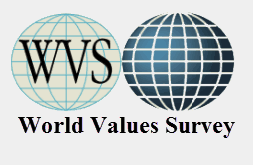Filter By
Data Projects
The Australian Government and the state and territory governments provided the funding for the Australian component of PISA 2015. All of Australia’s share of the international overheads and half of the basic funding for PISA within Australia was contributed by the Australian Government Department of Education and Training, while each state and territory government education department provided funding in proportion to the numbers of 15-year-old students enrolled in their schools. In Australia, PISA is guided by the International Assessments Joint National Advisory Committee (IAJNAC). ACER wishes to thank the IAJNAC members for their interest and commitment throughout every phase of the project. Their involvement included reviewing the frameworks and assessment items, assisting with the implementation of PISA in schools from their state or territory, and providing valuable information to ensure the success of PISA 2015 in Australia. The undertaking of PISA 2015 was a collaborative effort. A national assessment such as PISA could not be successful without the cooperation of school systems, principals, teachers, students and parents. A high participation rate of the randomly selected schools and students is essential for obtaining high-quality data. It is thanks to this level of cooperation that Australia was able to fully satisfy the internationally set response criteria for PISA 2015. ACER gratefully acknowledges the assistance of education system officials Australia-wide, and the principals, teachers and students in the participating schools who so generously gave their time and support to the project.
The Programme for International Student Assessment (PISA) is an international comparative study of student performance directed by the Organisation for Economic Co-operation and Development (OECD). PISA measures the cumulative outcomes of education by assessing how well 15-year-olds, who are nearing the end of their compulsory schooling in most participating educational systems, are prepared to use the knowledge and skills in particular areas to meet real-life opportunities and challenges. The term literacy is attached to the assessment domains of reading, mathematics and science to reflect the focus on these broader skills and as a concept it is used in a much broader sense than simply being able to read and write. The OECD considers that mathematics and science are so pervasive in modern life that it is important for students to be literate in these areas as well. This report presents the results for Australia as a whole, for the Australian states and territories and for the other participants in PISA 2018, so that Australia’s results can be viewed in an international context, and student performance can be monitored over time.
The assessment focuses on young people’s ability to apply their knowledge and skills to real-world problems and situations. The term ‘literacy’ reflects a focus on broader skills. As a concept, literacy is more than simply being able to read and write. Eighty-one countries or economies, involving around 690,000 students, participated in PISA 2022. In Australia, 743 schools and a total of 13,437 students (representing the full population of around 265,000 15-year-old students) completed the assessment. In Australia, PISA is managed by the Australian Council for Educational Research and is jointly funded by the Australian Government and all state and territory governments. PISA is a key part of Australia’s National Assessment Program. This report presents the results for Australia as a whole, for the Australian states and territories and for the other groups in PISA 2022. The results can be viewed in an international context, and student performance can be monitored over time.
The 2011 Canadian Election Study consists of 4 waves. Note that each survey wave is a different questionnaire: CPS is the Campaign Period Survey (by telephone), PES is the Post-Election Survey (by telephone), MBS is the Mailback Survey, and WEB is the final Web-based survey.
 Region:
Region:World, Miller projection, ultra high resolution
 Collection Date:
Collection Date:2005-01-01
The World Values Survey is a global network of social scientists studying changing values and their impact on social and political life, led by an international team of scholars, with the WVS association and secretariat headquartered in Stockholm, Sweden. The survey, which started in 1981, seeks to use the most rigorous, high-quality research designs in each country. The WVS consists of nationally representative surveys conducted in almost 100 countries which contain almost 90 percent of the world’s population, using a common questionnaire. The WVS is the largest non-commercial, cross-national, time series investigation of human beliefs and values ever executed, currently including interviews with almost 400,000 respondents. Moreover the WVS is the only academic study covering the full range of global variations, from very poor to very rich countries, in all of the world’s major cultural zones. The WVS seeks to help scientists and policy makers understand changes in the beliefs, values and motivations of people throughout the world. Thousands of political scientists, sociologists, social psychologists, anthropologists and economists have used these data to analyze such topics as economic development, democratization, religion, gender equality, social capital, and subjective well-being. These data have also been widely used by government officials, journalists and students, and groups at the World Bank have analyzed the linkages between cultural factors and economic development.





